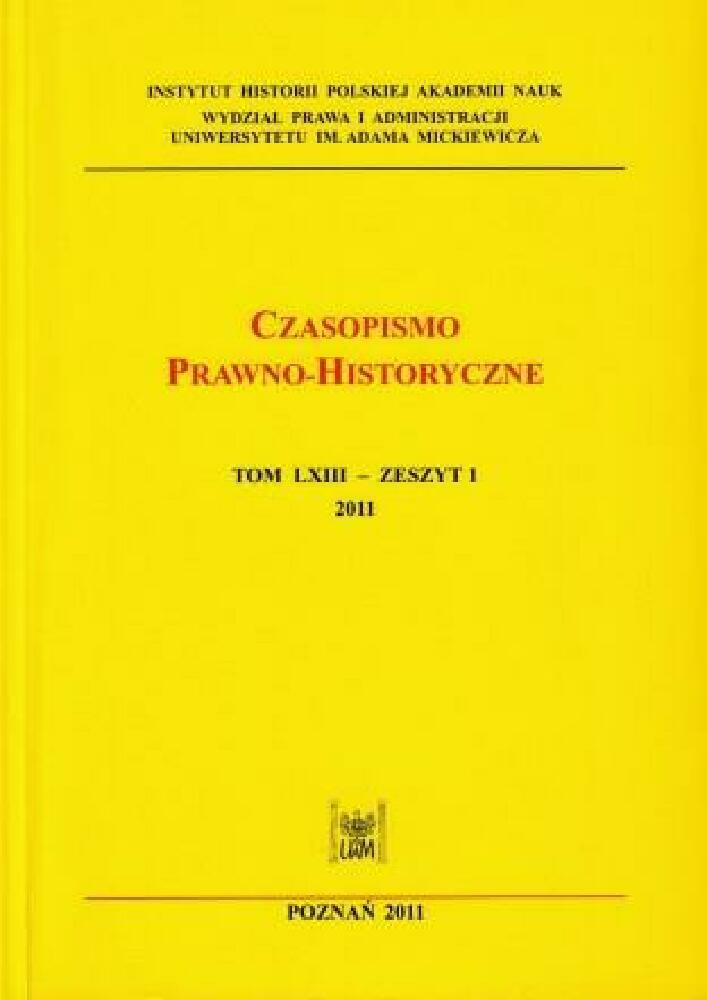Abstrakt
In the interwar period 1918-1939 the profession of a judge was subject to constant transformations being a result of numerous amendments to the legal regulations governing that profession. First, until 1928, the foreign laws that earlier governed in the partitioned territories of Poland had continued to apply, with only some minor modifications implemented by the Polish legislature. Later on, from 1 January 1929 and until the outbreak of the Second World War in 1939 all issues pertaining to the judicial profession were subject to common judicature uniformly applied throughout the whole country.
The independence of judges was one of the main principles inherent to the profession, guaranteed by the principles providing that judges were to be appointed and when in office not subject to removal, suspension or transfer, and the office of the judge was separate and distinct from all others. During the interwar period those principles underwent certain albeit moderate modifications, especially with regard to the conduct of the traineeship, while the unification of the structure of the courts opened up the position of a judge to women, earlier unavailable to them.
All those legal regulations provided for rights and duties of a judge, of which the most important rights were: the right to remuneration for the work performed, the right to retirement and pension, and the right to an annual leave. The duties, on the other hand, included: impartiality of opinion, protection of the authority of the court and avoidance of situations and any other circumstances that could be detrimental to court’s authority, the confidentiality duty and many others. Judges who additionally performed managerial functions had a special scope of duties. There were also disciplinary measures and each judge bore disciplinary liability as well.
The 2nd Republic of Poland suffered from a major deficit of lawyers adequately qualified to take up a position of a judge. Consequently, those who were already appointed judges, were overloaded with work, being at the same time underpaid. Another difficulty and big problem was insufficient office space to secure proper working conditions of the judges.
Finansowanie
Digitalizacja i Otwarty Dostęp dofinansowane przez Ministra Edukacji i Nauki w ramach umowy nr BIBL/SP/0002/2023/1
Licencja
Copyright© 2011 Wydział Prawa i Administracji UAM w PoznaniuOPEN ACCESS




